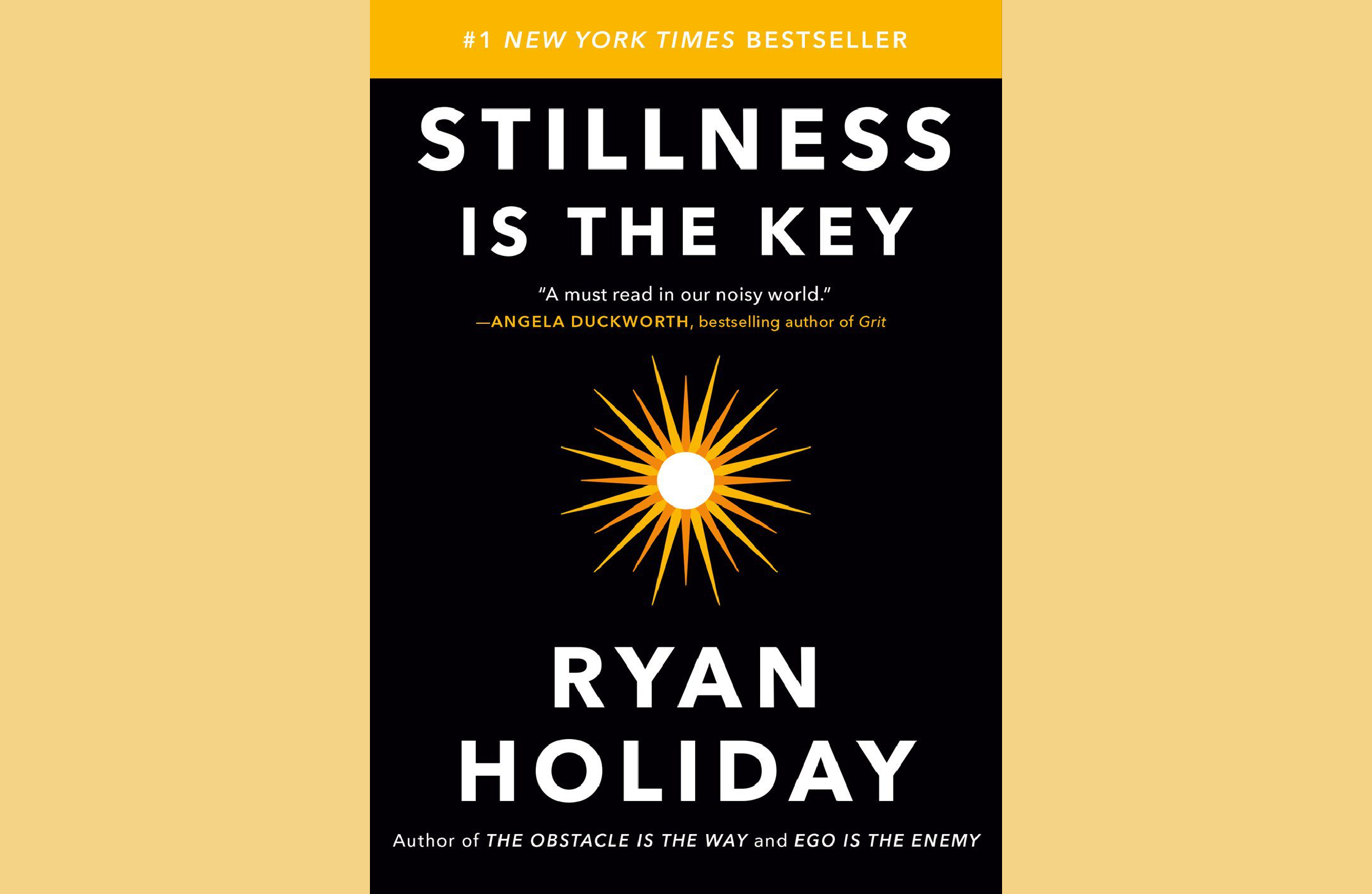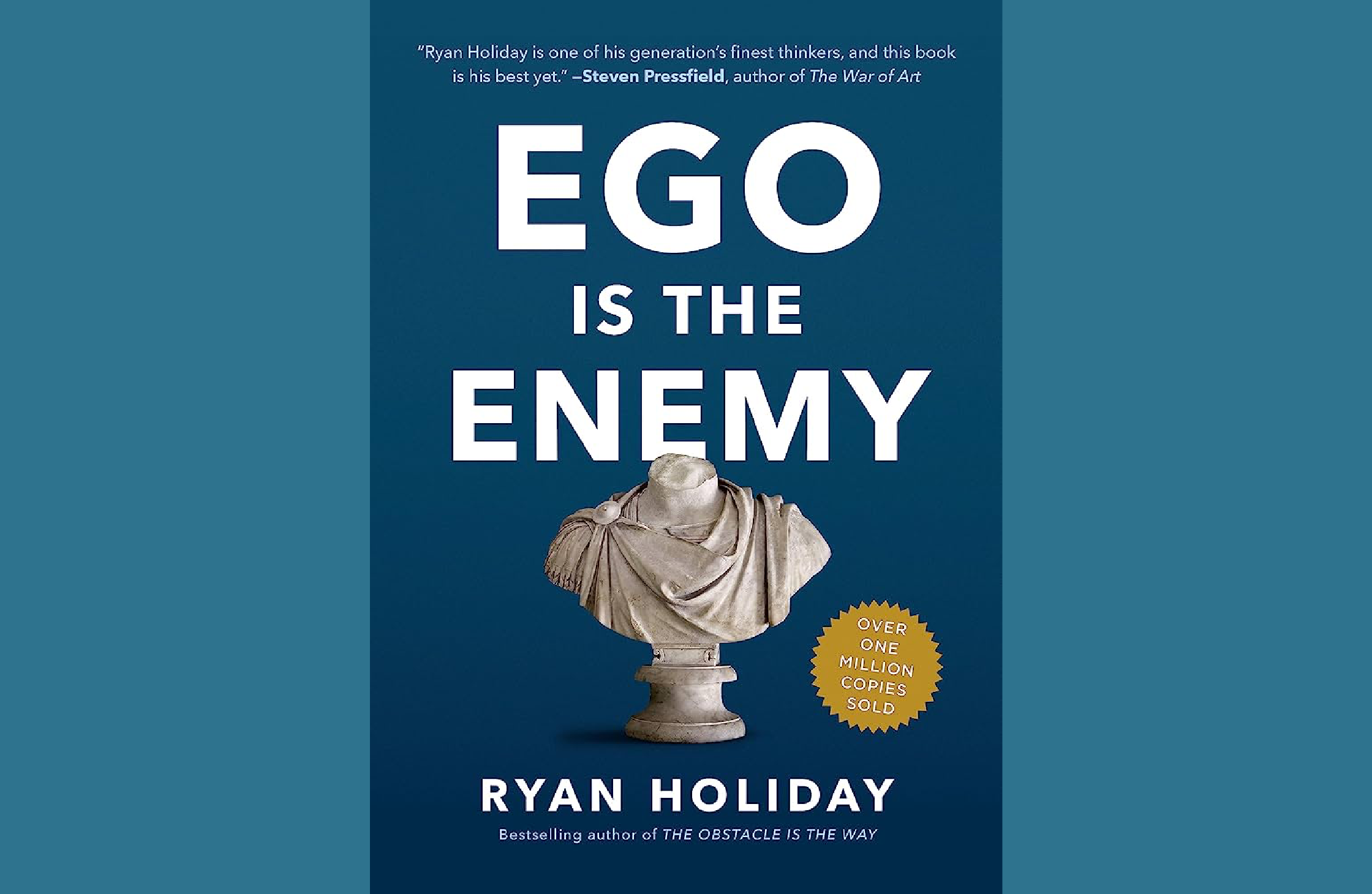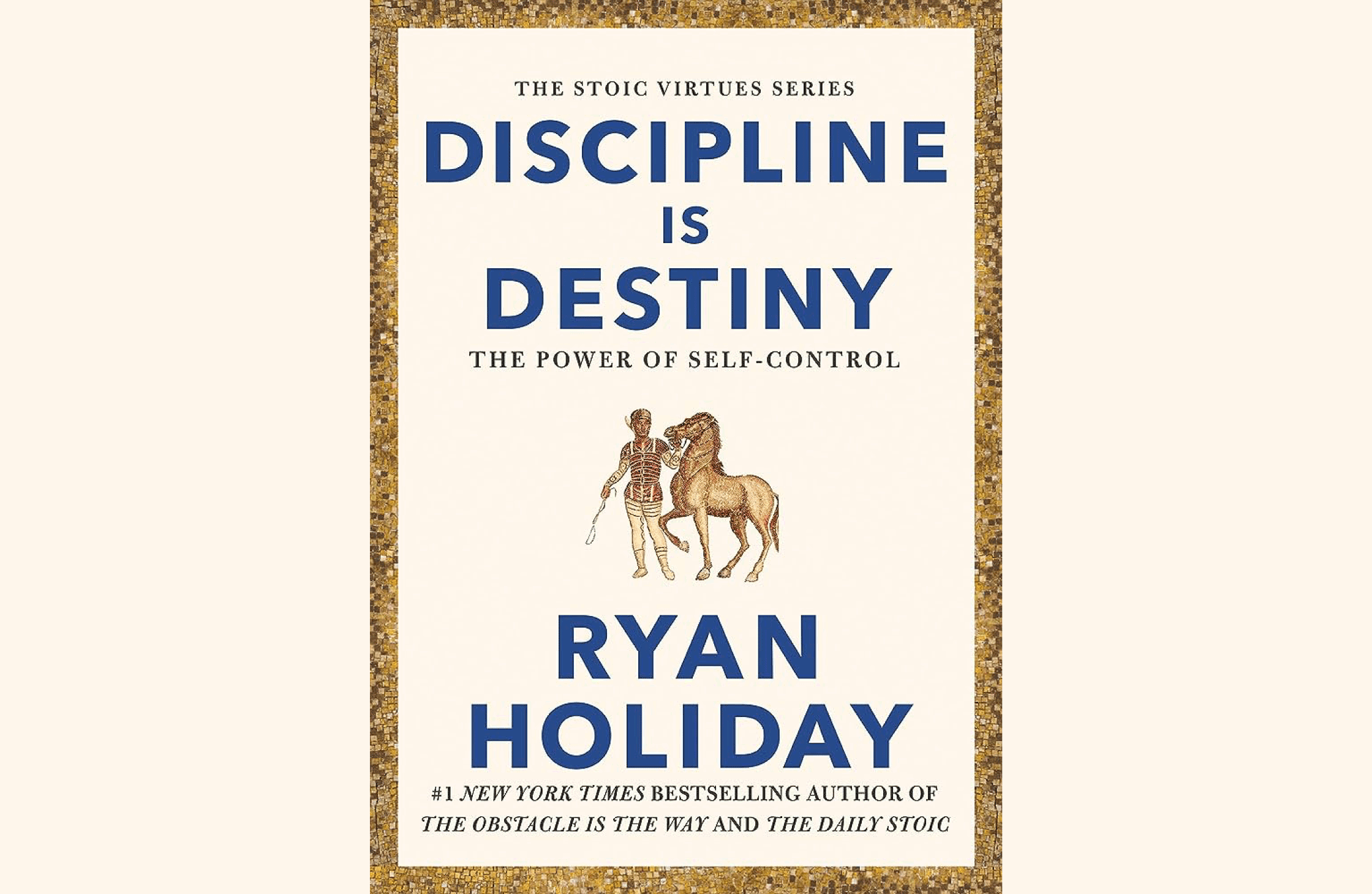Embracing Stoic Virtues: The Entrepreneur's Path to Resilience and Success
Discover the relevance of Stoic virtues - wisdom, courage, justice, and temperance - for entrepreneurs seeking to manage challenges, build resilience, and lead with integrity.

Adopting a philosophical framework that enhances resilience, ethical conduct, and clarity of thought is beneficial and essential. Stoicism, an age-old philosophy, is relevant in today's entrepreneurial environment. As an entrepreneur, embracing the Stoic virtues of wisdom, courage, justice, and temperance can guide you through the complexities of business with moral integrity and clear judgment. This exploration aims to show how these virtues can be seamlessly integrated into the daily life of an entrepreneur.

Wisdom: Navigating Business with Insight

Wisdom in entrepreneurship means recognizing and accepting the limits of your control. The market will fluctuate, and competitors will make their moves, but what you can control is your response to these external factors. Focusing on what you can influence - such as your product's quality or customer service - can significantly impact your business’s trajectory.
Moreover, adopting a mindset of continuous learning is crucial. Every experience offers invaluable lessons, whether a successful launch or a project setback. This relentless pursuit of knowledge and understanding equips you to make strategic and insightful decisions, propelling your business forward meaningfully.
In the unpredictable world of entrepreneurship, the wisdom to discern what's within our control and what's not is invaluable. Ryan Holiday, a modern advocate of Stoicism, offers profound insights into this ancient philosophy, particularly the virtue of wisdom. His teachings, deeply relevant to entrepreneurs, emphasize focusing on the aspects of our lives and businesses we can influence.
The obstacle in the path becomes the path. Never forget, within every obstacle is an opportunity to improve our condition. Ryan Holiday.
Understanding the Dichotomy of Control
The core of Stoic wisdom lies in understanding the dichotomy of control. Holiday stresses the importance of distinguishing between what we can control — our actions, reactions, and decisions — and what we cannot — like market trends or others' actions. As entrepreneurs, directing our energy towards areas we can influence, such as product innovation or customer experience, is far more productive than fretting over uncontrollable external factors.
Mindful Responses Over Impulsive Reactions
Holiday advocates for a considered approach to external events. Rather than responding impulsively, he suggests reflecting and aligning our responses with our core values and business objectives. This practice of mindful response helps maintain a rational and composed approach to business decisions, which is crucial in the fast-paced entrepreneurial world.
Embracing Obstacles as Opportunities
A unique aspect of Holiday's interpretation of Stoicism is viewing challenges not as setbacks but as opportunities for growth. He encourages entrepreneurs to leverage difficult situations for personal and professional development. This perspective shift transforms obstacles into valuable lessons, fostering resilience and adaptability.
Cultivating an Internal Locus of Control
Developing an internal locus of control is pivotal, according to Holiday. It's about recognizing that we are the primary architects of our destiny. For entrepreneurs, this means taking ownership of both successes and failures and understanding that our actions significantly shape our business outcomes.
Engaging in Reflective Practices
Holiday is a strong proponent of reflective practices like journaling. He sees these practices as essential tools for self-awareness and decision-making clarity. Regular reflection allows entrepreneurs to evaluate their decisions, understand their control sphere better, and make wiser, more informed choices.
Limiting Exposure to Negativity
In an age where information overload is common, Holiday advises entrepreneurs to limit their exposure to negativity, particularly from sources beyond their control. Instead, he recommends focusing on positive actions and nurturing a constructive mindset. This approach is crucial in maintaining mental clarity and motivation.
Courage: Boldness in Business

Courage for the entrepreneur involves stepping into the unknown with calculated risks. It's about innovating and expanding through new technologies or unexplored markets. However, this courage is not reckless; it's a measured bravery that evaluates risks and rewards with a clear mind.
Additionally, courage extends beyond mere business decisions. It encompasses moral fortitude—standing up for what is ethically correct. This might mean making tough choices, like opting for sustainable practices over cheaper alternatives or turning down profitable deals that don't align with your ethical standards. Such bravery sets a strong foundation for your business and builds its reputation as a moral entity.
His post delves into Holiday's advice on embodying courage, explicitly tailored for entrepreneurs who face unique challenges and moral dilemmas in their professional journeys.
Standing Firm in Your Values
Holiday emphasizes the importance of unwavering commitment to ethical and moral values. For entrepreneurs, this often means prioritizing ethical integrity over immediate profitability. It's about playing the long game, ensuring that your business practices align with your core principles, even when the path of integrity is more challenging.
Embracing Discomfort for Growth
According to Holiday, actual growth occurs outside the comfort zone. He encourages entrepreneurs to confront their fears and embrace discomfort as a catalyst for development. This might mean pursuing innovative projects that challenge the status quo, engaging in difficult conversations for the betterment of your business, or venturing into new markets despite the uncertainty.
Resilience in Adversity
Holiday places a strong emphasis on resilience. He advises viewing setbacks and failures not as final defeats but as opportunities to learn and come back stronger. This aspect of courage is crucial in entrepreneurship, where the landscape is fraught with unpredictability and challenges. Building resilience allows you to navigate these with determination and adaptability.
Speaking Out Against Injustice
In Holiday’s view, courage also involves taking a stand against injustice. For business leaders, this could manifest as advocating for ethical practices within their industry or addressing social issues that impact their community. It’s about having the moral courage to voice and address wrongdoings, even when it is easier to stay silent.
Learning from Criticism
Openness to constructive criticism is another facet of courage. Holiday suggests that entrepreneurs should not avoid feedback but rather embrace it as a tool for improvement. This means actively seeking out feedback, listening to it with an open mind, and using it to refine your business strategies and personal leadership style.
Leading by Example
Finally, Holiday underscores the importance of leading by example. Demonstrating courage through actions, not just words, sends a powerful message to your team, partners, and customers. It shows you are committed to doing the right thing, even under pressure or in challenging situations.
Wherever we are, whatever we’re doing, and wherever we are going, we owe it to ourselves, our art, and the world to do it well. Ryan Holiday.
Justice: Fairness and Integrity in Practice

Justice in entrepreneurship transcends legal compliance; it's about fostering fairness and integrity in every aspect of your business. This begins with how you treat your employees, suppliers, and customers. Creating a work environment where everyone is treated with respect and fairness fosters a positive culture and attracts and retains top talent and loyal customers.
Your responsibility extends to the broader society as well. Engaging in socially responsible practices, whether through sustainable operations or community engagement, reinforces your company's role as a contributor to societal well-being. This approach bolsters your brand's image and aligns your business operations with a greater purpose.
This post explores Holiday's advice on integrating this virtue into your entrepreneurial ethos.
Fair and Ethical Treatment of Employees
Holiday underscores the significance of creating a respectful and equitable work environment. This entails more than just physical safety; it fosters an emotionally supportive atmosphere where transparent communication and fair compensation are the norms. Recognizing each employee’s contribution and providing opportunities for their development is central to this approach. You enhance productivity and build a loyal and motivated workforce by valuing your team.
Building Trust with Suppliers
Holiday advocates for relationships grounded in trust and mutual respect in supplier dealings. Fair negotiations, honoring commitments, and open communication are the cornerstones of these partnerships. Such ethical interactions with suppliers ensure reliable, long-term business relationships beneficial for both parties. It’s about creating a network where everyone feels valued and respected.
Prioritizing Customer Satisfaction
Treating customers with the utmost respect and integrity is another aspect Holiday emphasizes. This involves understanding their needs, ensuring the quality of your products or services, and upholding honesty in all marketing and sales practices. Prioritizing customer satisfaction is not merely a strategy for increasing sales; it’s fundamental to building a reputable and enduring brand.
Practicing Social Responsibility
Holiday also highlights the broader implications of justice in business, which includes social responsibility. This encompasses considering your business’s impact on the community and environment. Adopting sustainable practices, contributing to community initiatives, and ensuring that your business operations are socially responsible are ways to practice this virtue. Such practices enhance your business's reputation and contribute positively to society.
Leading with Empathy and Compassion
A crucial element in Holiday’s advice is leading with empathy and compassion. Understanding and responding to the needs and perspectives of employees, suppliers, and customers with kindness is vital. This empathetic approach improves business relationships and contributes to a more just and humane society.
Focus on what you can control, let go of what you can't, and find the good in what you have. Ryan Holiday.
Temperance: The Art of Balance

Temperance, especially in the entrepreneurial context, involves the discipline of balance. This includes financial prudence—avoiding impulsive investments and focusing on sustainable growth strategies. Such fiscal discipline ensures the longevity and stability of your enterprise.
Beyond finances, temperance is about maintaining a healthy work-life balance. The entrepreneur's well-being is intrinsically linked to the health of their business. Ensuring you have time for personal growth, relaxation, and perspective is essential. This balance is not just beneficial; it's necessary for sustained success and personal fulfillment.
This post explores Holiday's perspective on temperance, focusing on its application in the entrepreneurial journey.
Moderation in All Aspects
Holiday emphasizes the Stoic principle of moderation. He advises entrepreneurs to avoid extremes in any aspect of their lives, whether work, pleasure, or material pursuits. This approach is vital in preventing burnout and sustaining long-term productivity. For entrepreneurs, striking this balance is essential for personal well-being and the health and success of their businesses.
The Power of Self-Discipline
At the heart of temperance, according to Holiday, is self-discipline. This involves setting personal and professional boundaries and adhering to them. Discipline in work habits, time management, and maintaining ethical standards under pressure is critical. This means setting goals and standards for business leaders and consistently living up to them.
Focusing on Long-Term Goals
Temperance, as per Holiday, also involves keeping long-term objectives in focus. Entrepreneurs are often tempted by short-term gains or sidetracked by immediate challenges. Holiday advises maintaining a steady gaze on long-term goals and sustainable growth, avoiding the distractions of fleeting successes or setbacks.
Balancing Work and Personal Life
Holiday stresses the importance of work-life balance. He advocates for a well-rounded life where personal health, relationships, and leisure are valued alongside professional commitments. For entrepreneurs, this balance is crucial for maintaining energy, creativity, and overall life satisfaction.
Emotional Regulation
Another critical aspect of temperance is emotional regulation. Holiday recommends maintaining a calm and steady demeanor, especially in stressful or challenging situations. For entrepreneurs, this means not letting emotions dictate business decisions but approaching situations with a composed and rational mindset.
Mindful Consumption
Finally, Holiday touches on the concept of temperance in consumption. This extends to material goods, information, and even digital content. He suggests a mindful approach, focusing on what adds value and clarifying excessive or unhelpful consumption. This principle can help entrepreneurs stay focused and avoid the clutter that distracts or derails them.
We must all either wear out or rust out, every one of us. My choice is to wear out. Ryan Holiday.
Conclusion
Stoicism is more than enduring challenges; it's about thriving amidst them with a balanced, ethical, and thoughtful approach. As an entrepreneur, integrating these virtues into your daily life will guide your business toward long-term success and contribute to your personal development as a leader. Embrace the Stoic path, and let resilience, ethics, and clarity steer your entrepreneurial journey toward business success and personal growth.



